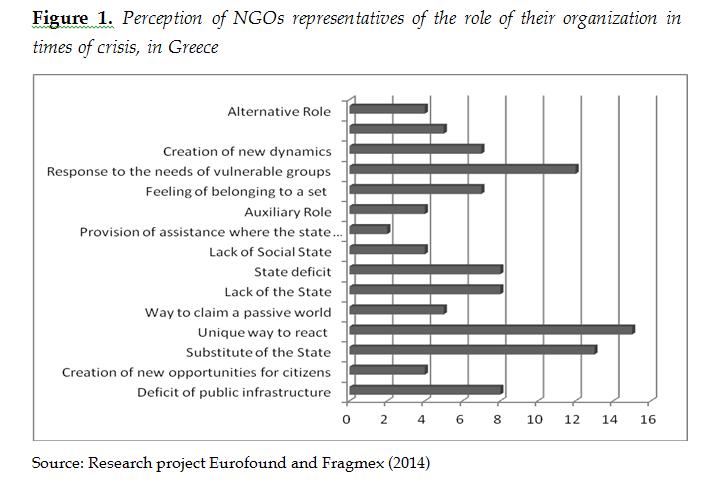Zafiropoulou, Μ. (2015) “Exclusion from Healthcare Services and the Emergence of New Stakeholders and Vulnerable Groups in Times of Economic Crisis: A Civil Society’s Perspective in Greece“, Social Change Review, Winter 2014, Vol. 12(2): 25-42, 12 February.
The exclusion from access to basic health services, medical examinations, hospital and pharmaceutical care has affected a large number of Greek citizens during the economic crisis. The first aim of this paper is to focus on the analysis of those new vulnerable groups who face access problems to healthcare services. The second aim of the paper is to examine the new stakeholders and to explore the civil society’s emerging initiatives.
Unfortunately, so far, there have been only a few cross national surveys that analyze and identify new vulnerable groups, new stakeholders and problems of access to healthcare services in times of crisis. This problem is related to the lack of information and data available for these specific groups even during periods of economic florescence. In order to resolve the problem of data, this paper is based on two large scale European projects in Greece during the latest years of the crisis: the Eurofound research project on ‘Access to healthcare in times of crisis’ (2013-2014) and the ongoing Fragmex ‘Fragmentation and Exclusion: Understanding and Overcoming the multiple impacts of European crisis’ research project (2013-2015) using a multi-method approach combining macro and micro perspectives from respectively quantitative official national and international data and qualitative data based on interviews of NGOs and ecclesiastic organizations.
The alternative model of civil society’s empowerment has not only become one of the most visible symptoms of the crisis but presents, as well, a conceptual construct that attempts to place citizens’ synergies in a central place, in a space that emphasizes inter-relationships too often ignored by policymakers.
Relevant posts:
- Costa-i-Font, J. & Zigante, V. (2014) “Why the views of middle class citizens help explain increased choice in European healthcare systems“, LSE EUROPP, 21 November.
- Eurofound (2014) Access to healthcare in times of crisis, Eurofound Surveys: EF14421, 31 October.
- Saltman, R. (2014) “Pragmatism is beginning to trump ideology in Europe’s ‘public-private’ debate over healthcare“, LSE EUROPP, 09 October.




